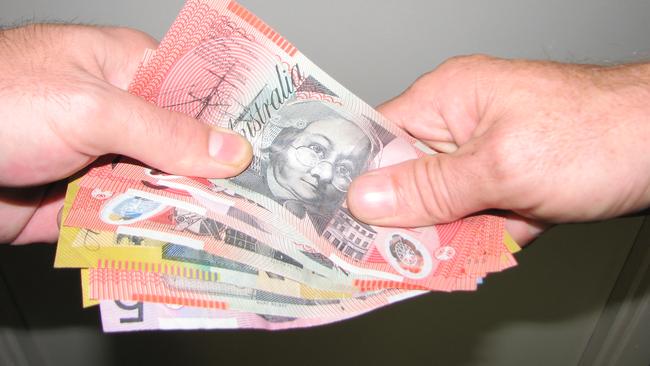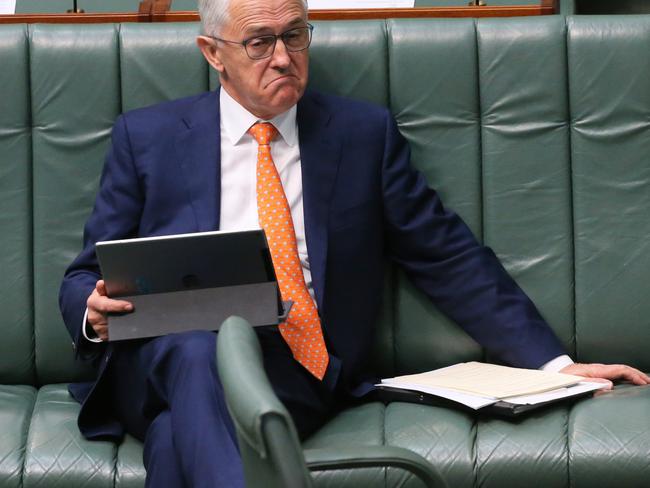Australia’s $15bn ‘national sport’ is in jeopardy
IT’S the illegal “black economy” facing a crack down, but workers who rely on it say the pollies are blaming the little guy again.

IT’S been described as Australia’s “national sport”, allowing tax-dodgers to rake in a fortune without giving back to society.
The Federal Government is planning a crackdown on businesses paying wages in cash in the May Budget. It says this will help claw back up to $15 billion in unpaid taxes and bogus welfare payments.
But workers who are part of the so-called black economy say they rely on illegal cash payments just to scrape by, and the Government is simply penalising the country’s worst-off again.
And many small businesses in the construction, childcare and hospitality industries say they could not survive if they did not pay staff in cash.

‘EVERYONE BENEFITS EXCEPT THE GOVERNMENT’
“I don’t see it as cheating the taxpayer as the little guy earning $20 or $30 an hour cash is a drop in the ocean next to Google or some of these other corporations not paying a penny,” 29-year-old Jack Stone*, from Bondi, told news.com.au. “I’ve had a few cash jobs. The first was washing dishes in a cafe in Redfern for two weeks. The owner was dodging tax and he paid $16 an hour so it was below minimum wage I think, but it worked for me. Second one was a mate who was a sole trader and didn’t want to look like he was employing anyone.
“A lot of construction workers are on ABN. So they run as their own business and it’s up to them how they pay tax. That’s what I do now. I honestly don’t think the Government can stop it really, especially in construction. If they do, I think people will still find a way round it.
“I also do cash jobs here and there to this day as it’s easy and for one-offs, everyone benefits except the Government.”
The cash economy is thought to account for around $21 billion or 1.5 per cent of GDP, according to the Australia Bureau of Statistics. Board of Taxation chairman Michael Andrew, who leads the Black Economy Taskforce, told Fairfax Media around $10bn of that is untaxed and a further $4bn to $5bn is overpaid welfare benefits.
He said Australians consider taking cash payments and not declaring it “almost a national sport”. Mr Andrew said the problem was “really large and unfortunately it’s going to take a significant amount of work to turn around societal attitudes.”

‘I DIDN’T WANT TO WORK ILLEGALLY FOR RUBBISH MONEY’
But Anna Price*, 34, told news.com.au she “didn’t want to work illegally for rubbish money” but as an international student from the UK on a visa, it was her only option. “I’m studying full-time and am only allowed to work 20 hours per week. For most internationals who are only able to get bar or waitressing jobs here, this does not allow us to make enough to even pay the rent so we have to take illegal work to make up the difference.
“Ridiculous work rights tied to various visa restrictions put non-residents at risk, where they have no choice but to take these jobs and are taken advantage of.”
Lewis Zhang*, who was paid in cash for DJing gigs he did alongside his full-time job, said companies would take down bank details and just pay through formal channels for one in four appearances. But he said he could see it from the employer’s perspective, too.

‘THEY’D JUST GO BUST’
“They do tend to play on a dumb kid’s wish to keep it simple and maximise their amount,” he told news.com.au. “Some small businesses, however, couldn’t survive if they didn’t do this. In a DJ game, to be legit, the licences for gear, music and insurance are ridiculously high and not up to speed with current trends so it would either raise the costs to the client, or they’d just go bust.”
Ms Power agreed. “I see why small businesses do it as a way to save on tax themselves,” she said. “If the Government wants to crack down they need to look at the whole thing — visas and how much tax they charge small business and come up with a solution that actually works, as it is well and truly broken at the moment.”
Mr Zhang said one issue with not being on the books was workplace safety and compensation. “I was happy to work this way and didn’t have a problem with it but in hindsight, things like working in loud clubs where I’ve lost some of my hearing, back problems from transporting speakers up and down stairs, the late nights ... I think I can now understand in hindsight why it’s better to go through the formal channel.
“When you’re younger you don’t think or care about things like workers comp, you just want the cash there and then.”
* Names have been changed to protect identities.




